The Daily Escape:
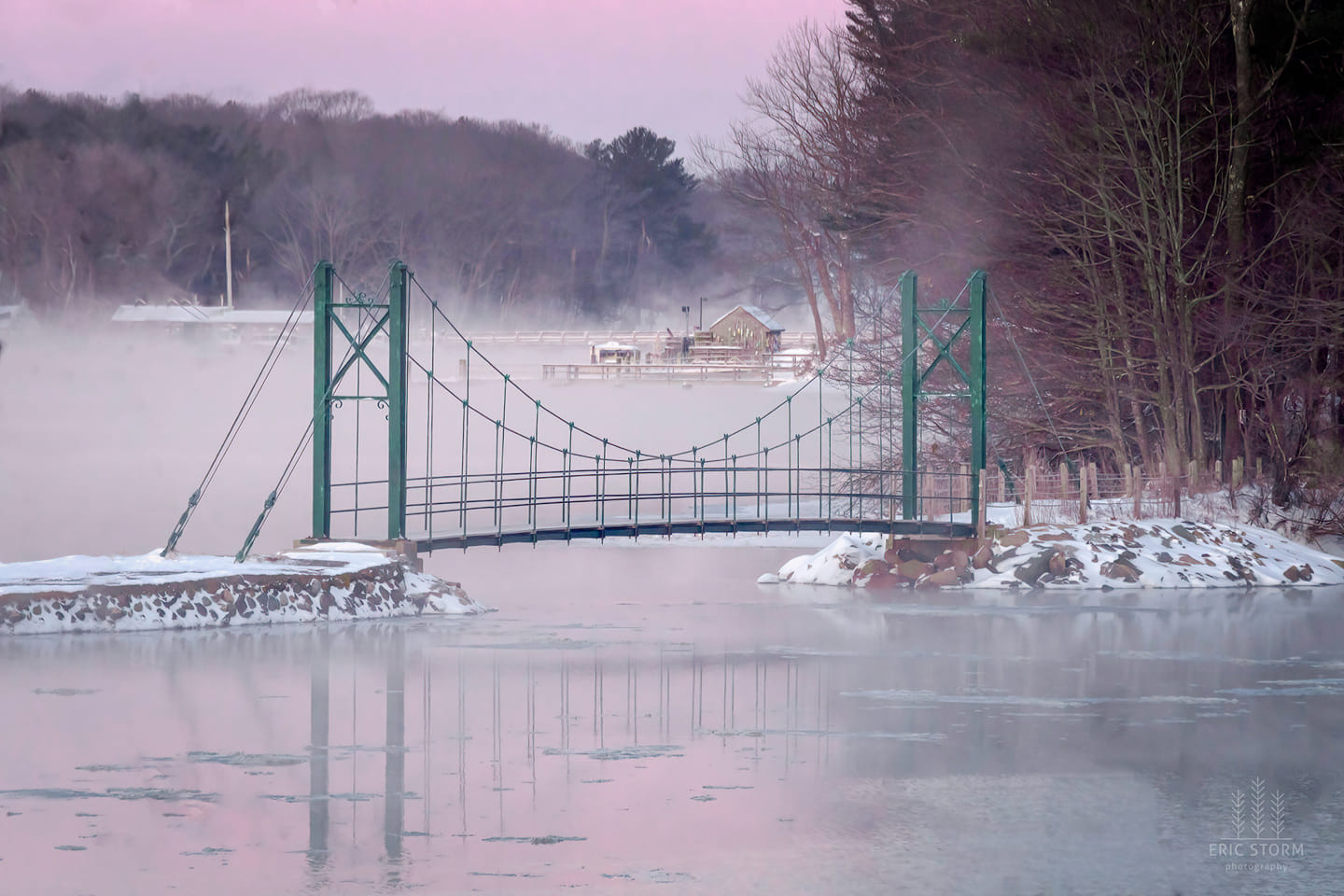
Wiggly Bridge, York, ME – February 2022 photo by Eric Storm Photo
Wrongo intended to write about domestic issues today. One domestic issue is how Republicans and the Right-wing media pivoted over the weekend from being pro-Putin and his War, to now saying Russia was wrong to invade Ukraine. Is that proof that the sanctions are working?
It’s hard to turn away today from Ukraine news, despite knowing that Biden’s State of the Union (SOTU) speech is tomorrow night. The Republican reply will be given by Iowa’s Governor Kim Reynolds. This happens at a time when there are big differences of opinion about the most important issues facing the nation by Democrats and Republicans.
According to a Pew Research Center survey, 71% of US adults rated strengthening the economy as a top policy priority, followed by reducing health care costs (61%), addressing the coronavirus (60%), improving education (58%) and securing Social Security (57%). The survey was conducted between Jan. 10-17, 2022 among 5,128 adults.
But as expected, the top issues were very different for those who identified as a Republican or as a Democrat. When asked which issues “should be a top priority for the president and Congress to address this year,” the top five regarded as most important by Democrats were:
Top 5 priorities, according to Democrats (percent saying issue should be a top priority)
- Dealing with the coronavirus outbreak (80%)
- Reducing health care costs (69%)
- Improving the educational system (66%)
- Dealing with global climate change (65%)
- Strengthening the nation’s economy (63%)
Here’s the Republicans’ top-five list:
Top 5 priorities, according to Republicans (percent saying issue should be a top priority)
- Strengthening the nation’s economy (82%)
- Dealing with the issue of immigration (67%)
- Defending the country from future terrorist attacks (65%)
- Reducing the budget deficit (63%)
- Reducing crime (60%)
Strengthening the nation’s economy is the only priority that both Democrats and Republicans rank among the most important. Two of the Democrats’ top priorities are among the five lowest-priority issues for Republicans. Only 11% of Republicans think global climate change should be a priority (vs. 65% of Democrats). Just 35% of Republicans think dealing with the coronavirus outbreak should be a priority (vs. 80% of Democrats).
Conversely, two of the Republicans’ top priorities are among the five lowest-priority issues for Democrats. Only 35% of Democrats think immigration should be a priority (vs. 67% of Republicans). Just 31% of Democrats say the budget deficit should be a priority (vs. 63% of Republicans).
All of this may be on display at the SOTU and the Republican reply on Tuesday.
Returning to Ukraine, it’s reported that Ukraine and Russia have agreed to have low-level delegations meet, hosted by Belarus, to discuss ending the war. It’s unclear what exactly might be achieved from these negotiations, given that Putin’s War appears to be aimed largely at removing Zelensky from power.
Finally, assuming that Russia wins either on the battlefield or at the negotiating table, that will almost certainly be followed by a Ukrainian insurgency supported by NATO. The US military knows a lot about how many troops it takes to hold ground when most of the locals want you dead.
Many military studies say that the number needed is 10 troops to one insurgent. From The Dupuy Institute (TDI): (Brackets by Wrongo)
“…TDI amassed data on 109 post-World War II insurgencies, interventions, and peacekeeping operations between 2004 and 2009. [TDI]…found that….While overwhelming numbers were not required to defeat an insurgency, force ratios above 10-to-1 nearly always produced a counterinsurgent victory. Conversely, lower force ratios did not preclude success, but conflicts with two or fewer counterinsurgents per insurgent greatly favored an insurgent victory.”
Remember in this case the insurgents would be Ukrainians, and counterinsurgents the Russians. More from TDI:
“When force ratios were assessed together with the nature of the motivation for the insurgency, TDI found that….when facing broadly popular insurgencies, counterinsurgents lost every time they possessed a force ratio advantage of 5-1 or less, failed half the time with odds between 6-1 and 10-1, but succeeded three-quarters of the time when outnumbering the insurgents by 10-1 or more.”
Ukraine’s pre-war population was 44 million. Let’s assume that 20% would support an insurgency, and that 2% would participate in an insurgency. That would be 176k Ukrainian insurgents. Following the 10-1 ratio would mean Russia would need to keep 1.76 million troops on the ground to win, an unsupportable number. Cutting the number of insurgents in half would mean Russia would need 880k troops to occupy Ukraine, still an unsupportable number.
This could mean that an insurgency in Ukraine could succeed as easily as it did in Afghanistan.
Time to wake up Putin! You might win before you lose in Ukraine. To help you wake up, watch the Saturday Night Live open, where the Ukrainian Chorus Dumka of New York performed “Prayer for Ukraine”:
Kinda makes you tear up.


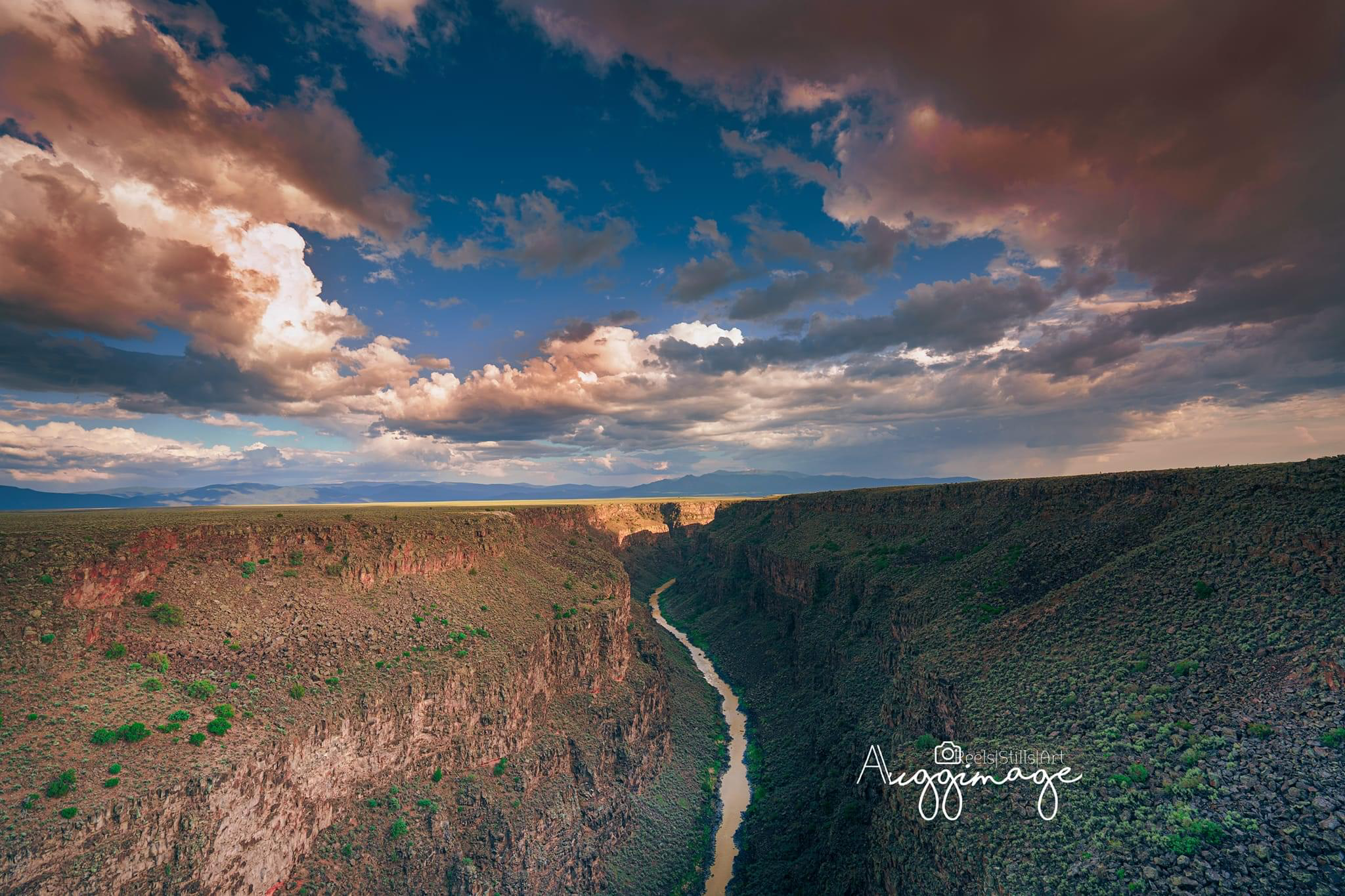
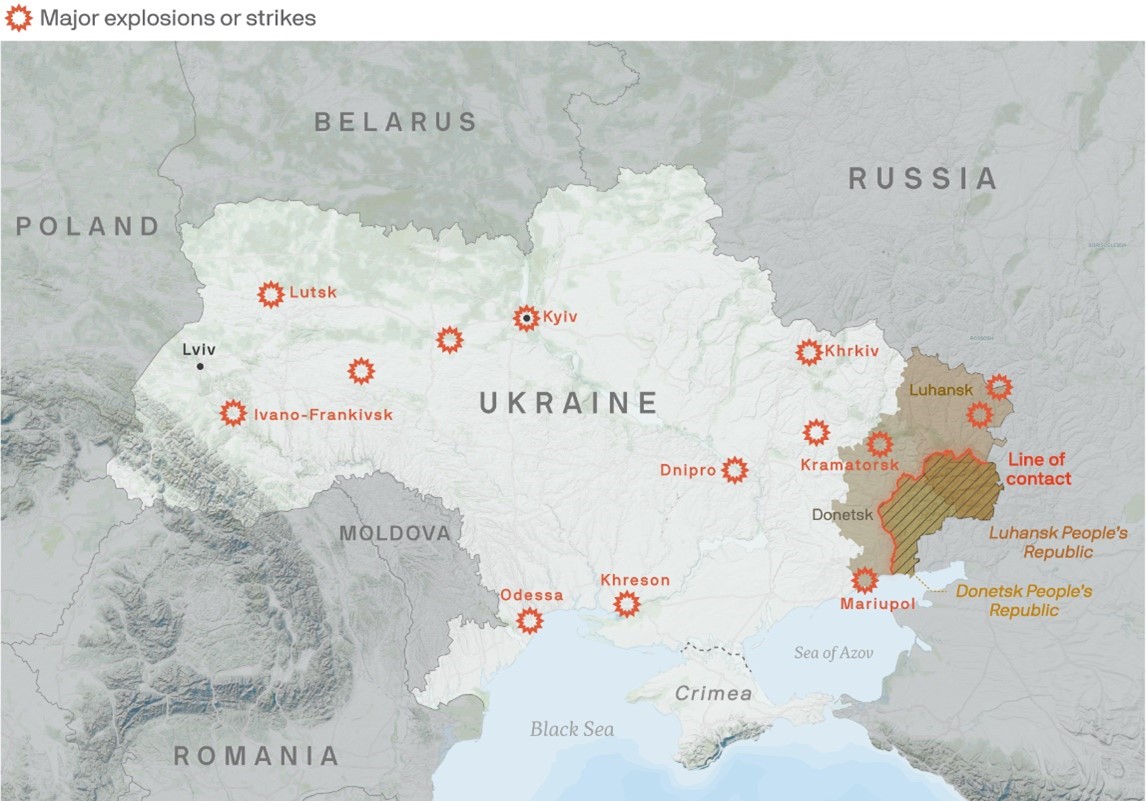





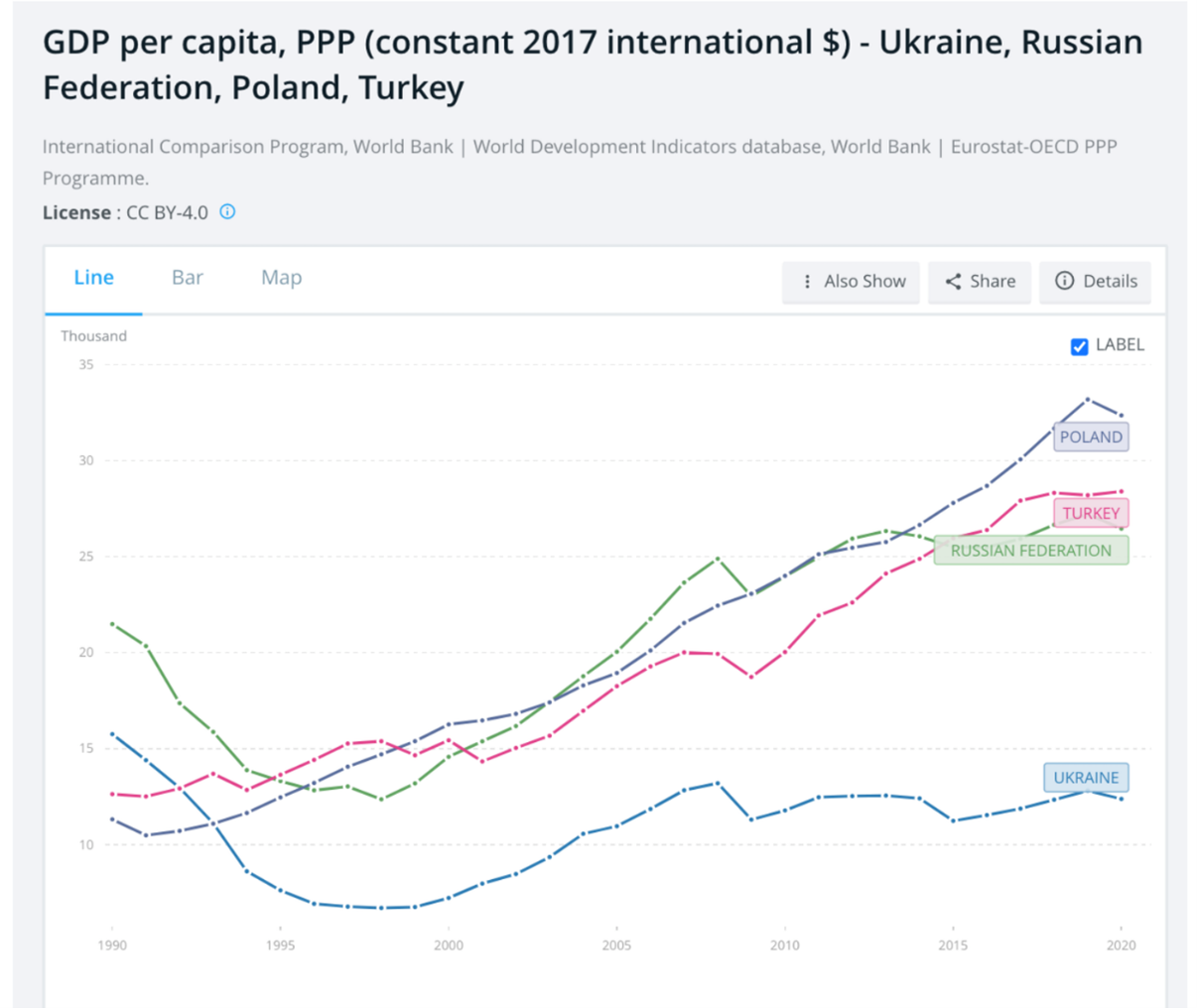
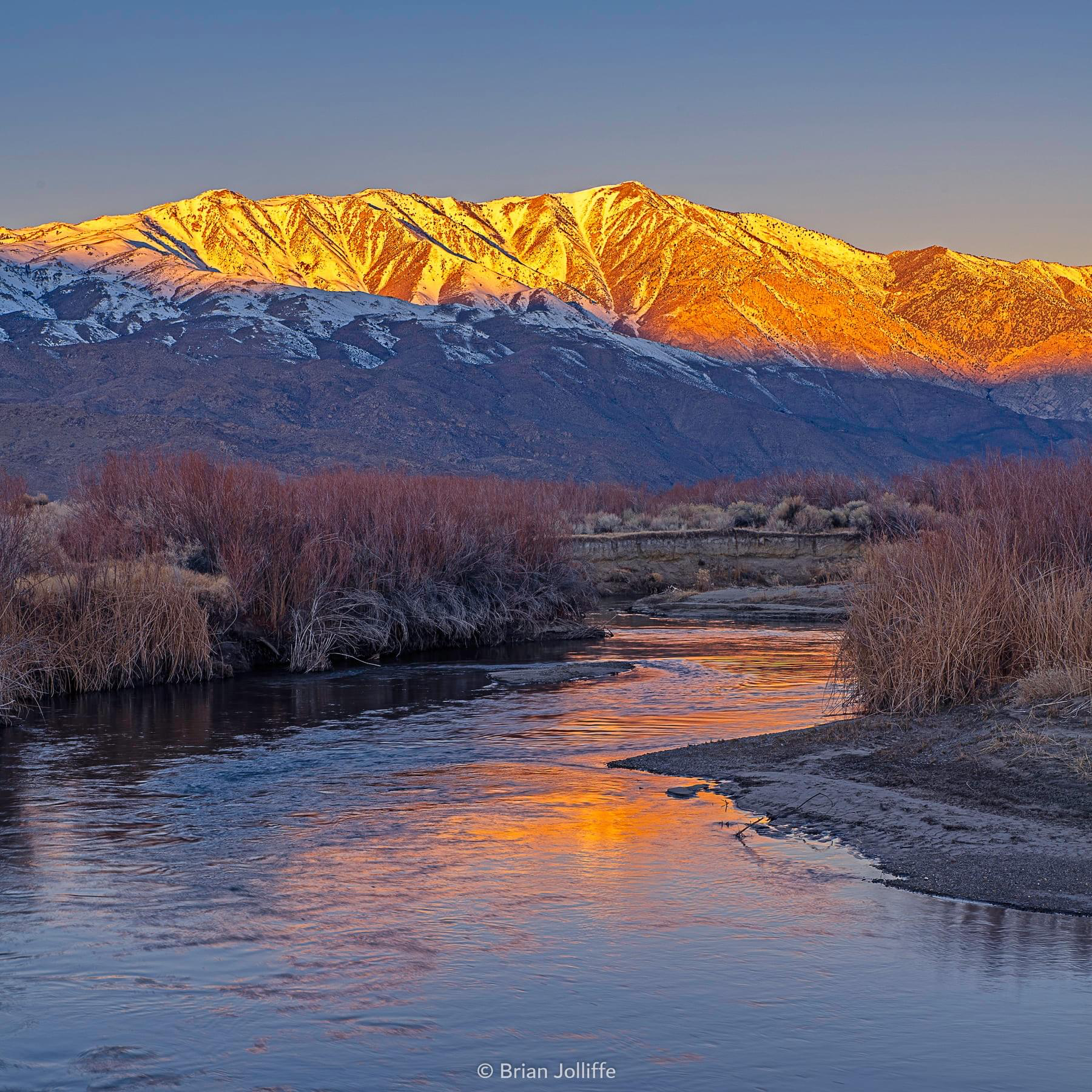
 Winter in the Palouse, near the town of Oakesdale, WA – January 2022 photo by
Winter in the Palouse, near the town of Oakesdale, WA – January 2022 photo by 